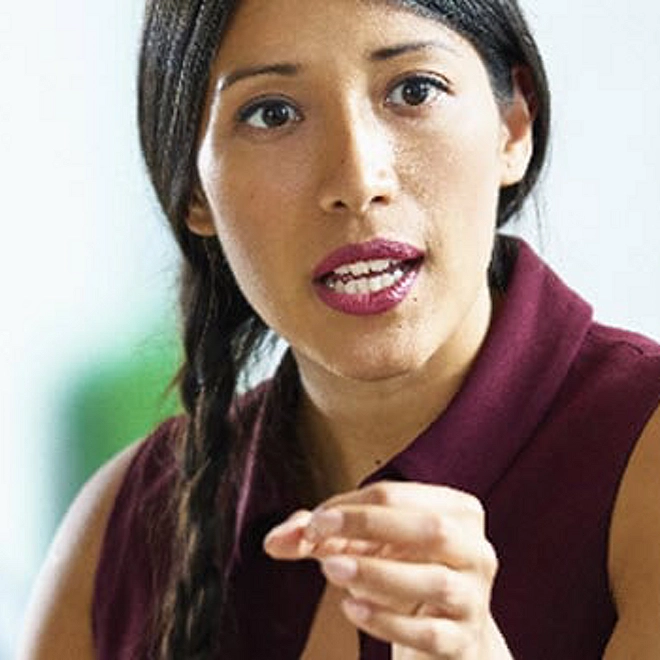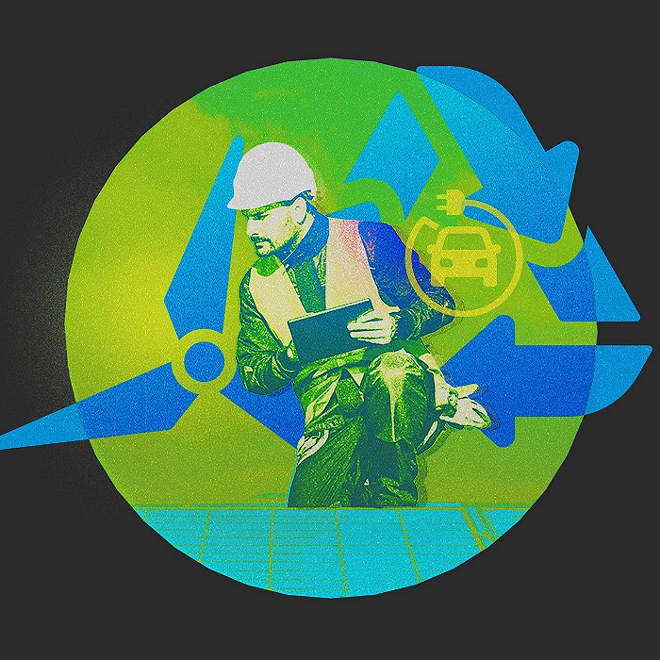Health equity
Health equity is the fair and just opportunity for everyone to fulfill their human potential in all aspects of health and well-being. This overall state of well-being is influenced not just by access to health care, but also by systemic and unintentional bias and the conditions in which people are born, grow, live, work, and age—the social, economic, and environmental drivers of health.
2023 Global Impact Report
Building better futures
While history shows that global society has made tremendous strides in extending average life expectancy, historically marginalized communities are still more likely to experience worse health outcomes than the overall population. These health inequities are being exacerbated by climate change, forced migration, the rising cost of living, and the continuing impact of the COVID-19 pandemic.
Achieving health equity is a complex, global challenge—one where many organizations have a role to play, including Deloitte.
A global commitment
Deloitte is honored to be among the growing list of approximately 80 signatories of the Zero Health Gaps Pledge, the first global, multi-sector, CEO-level pledge to help advance health equity. Launched by the Global Health Equity Network (GHEN) at the 2023 World Economic Forum (WEF) Annual Meeting in Davos, the pledge aligns with Deloitte’s Purpose, to make an impact that matters, and with our goal of achieving health equity across our organization, offerings, communities, and ecosystem globally.
The pledge includes 10 key commitments for CEOs to embed health equity principles throughout their operations, workforce, and guiding philosophies. Pledge commitments include supporting strong diversity, equity, and inclusion programs; providing accessible high-quality health and mental health services; paying employees across the supply chain a living wage; and investing in safe living environments.
Deloitte has worked closely with WEF over the past several years to establish and lead the GHEN, a network that mobilizes executive leaders across sectors and geographies to commit to prioritizing health equity. Deloitte Global CEO Joe Ucuzoglu serves as co-chair of the GHEN.
While achieving a world with zero health gaps is an immense challenge, we believe health equity is an essential element in making a sustainable future for humanity a reality. Deloitte is committed to activating our clients, resources, and communities to help reach this goal.
Addressing health concerns around the world
Over the past year, Deloitte firms have taken action to advance progress toward the goal of zero health gaps through the Deloitte Health Equity Institutes (DHEIs). In addition to the established DHEIs in Africa, India, and the US, we recently launched DHEIs in Europe and Spanish Latin America (S-LATAM). Each of the DHEIs advances an array of cross-sector collaborations, philanthropic investments, and research activity. These initiatives are unified by our global mission and focused on the unique health challenges in their respective regions.
The Africa DHEI is working to help reduce health disparities across the continent through collaborations with key policymakers and players in the life sciences and pharmaceutical industries. Earlier this year, the Africa DHEI published Improving access to health care in Africa, a report that examines these disparities and highlights innovative approaches to tackling them. The Africa DHEI is also developing an initiative to help address mental health in rural and remote communities.
The India DHEI is working to support mental health and well-being by mobilizing resources for local health care practitioners to help close the treatment gap, reduce the stigma surrounding diagnosis and treatment of mental ill-health, and ultimately improve quality of life. The India DHEI’s report, Mental health and well-being in the workplace, takes a closer look at how mental health and well-being have the potential to make a significant impact on employees, and makes the case for change. In addition, the India DHEI is extending the “Expand the Ward” model to help address the topic of maternal and child anemia. This year, the India DHEI implemented the model in three communities; anemia levels subsequently dropped by 23% over the following three months, against the government target of 3% in one year. Additionally, the India DHEI engaged in advocacy research reports to identify and document the social determinants of health for vulnerable groups in the country. This research provided deep insights into health care behaviors and access vulnerabilities of gig-workers and the unemployed population and made policy recommendations to help make health care more inclusive for these groups.
The US DHEI has established more than 25 collaborations across the public, private, and social sectors to further its mission to advance health equity for those with some of the greatest needs. These collaborations are designed to activate decision-makers to take action, advance health equity in communities, and drive innovation and learning through the use of data and analytics tools and research. For example, the US DHEI’s collaboration with UnidosUS, the largest Hispanic civil rights and advocacy organization in the US, will help provide equitable mental and oral health care access for Latino children. Driving Health Equity in the Workforce, a US DHEI collaboration with the American Heart Association (AHA) and the Society for Human Resources (SHRM) Foundation, is supporting AHA’s creation of a roadmap of tools, resources, and knowledge products to help improve health and well-being for 10 million members of the US workforce. The US DHEI is also collaborating with organizations like New Profit and Echoing Green to support social entrepreneurs who are developing innovative solutions to the direct and upstream causes of health inequities across the nation.
Launched earlier this year, the European DHEI is focusing its work on mental health, particularly in children and young people, as well as efforts to highlight and reduce inequities in cancer. The European DHEI collaborated with Mind & Scottish Association for Mental Health to create an interactive mental health cost calculator. By inputting organizational data, employers can better understand the true cost of poor mental health, compare their results to industry averages, and learn more about recommendations for investing in their employees’ well-being and mental health.
The S-LATAM DHEI also launched this year, with an initial focus on lung cancer, reproductive health, and diabetes—all critical health concerns impacting the population in Latin America. The S-LATAM DHEI collaborated with Novartis to publish Take heart and stop the silent killer, a report designed to increase awareness of Atherosclerotic Cardiovascular Disease (ASCVD) in the region. The S-LATAM DHEI, in collaboration with a pharmaceutical company dedicated to women’s health, the Yucatan Government in Mexico, and the United Nations Population Fund, designed a sustainable and innovative financing model to help reduce unplanned teenage pregnancies in the Yucatan area of Mexico. With those lessons learned, the S-LATAM DHEI is also collaborating with the Bolivar Government in Colombia to address the same health challenge. Finally, the DHEI is working, along with one of the states in Mexico and a pharmaceutical company with products for diabetes diagnosis and treatment, to design a model focused on providing diabetes patients with more access to diagnosis and treatment.
Looking ahead
The DHEIs continue to advance critical insights and understanding in their regions, as well as establish cross-sector collaborations, philanthropic investments, and research activity to raise awareness and spur action. Efforts over the past year, including the launch of two new DHEIs, lay the foundation for expanding the impact of the DHEIs and accelerating progress toward global health equity.
Learn more about the DHEIs.
In a year of global challenges with a deeply human impact, Deloitte sought to support and inspire our people and communities, making an impact that matters in society.
Opens in new window



